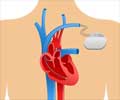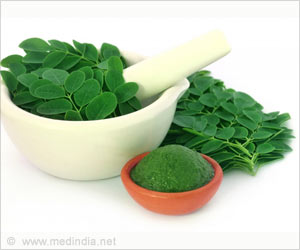In heart failure patients rather than regulating salt intake, the emphasis should be on setting a safe amount of sodium consumption.
- Reducing sodium is still the best strategy to help treat heart failure, but the amount of restriction is debatable
- More sodium restriction does not always result in better outcomes, rather it was found to be detrimental
- This suggests that there is room to determine best sodium goals or discover subgroups of heart failure patients who would benefit from more or less restriction
What is Heart Failure?
Heart failure, a chronic illness in which the heart muscle becomes too weak or stiff to effectively pump blood, affects roughly 6 million adults in the United States. A low-sodium diet is recommended by doctors to lower blood pressure and avoid typical symptoms such as fluid buildup and swelling. Previous research, however, has yielded conflicting results about the appropriate maximum daily sodium intake for people with heart failure.Is it Wise to Lower the Sodium Intake in Heart Failure Patients?
“Our findings showed that restricting dietary sodium to less than the usual recommendation was counterproductive in the management of heart failure,” said Anirudh Palicherla, M.D., an internal medicine resident at Creighton University School of Medicine in Omaha, Nebraska, and the study’s lead author. “This was in line with a recent randomized controlled trial suggesting that restricting sodium more than what we do now doesn’t necessarily lead to better outcomes.”Daily Recommended Sodium Intake for Adults
The U.S. Dietary Guidelines for Americans recommends that most adults limit dietary sodium intake to 2.3 grams per day or less, equivalent to about one teaspoon of table salt. The average American consumes over 3.4 grams of sodium per day. In the study, researchers analyzed nine randomized controlled trials that assessed different levels of sodium restriction for people with heart failure and included data on rates of death and hospitalization. Most of the studies were conducted between 2008-2022, except for one earlier study published in 1991. Together the trials enrolled nearly 3,500 heart failure patients in total.Analyzing outcomes across all studies, researchers found that patients following a diet with a sodium intake target below 2.5 grams per day were 80% more likely to die than those following a diet with a target of 2.5 grams per day or more. The sodium limits varied from about 1.2-1.8 grams per day in the more restrictive study arms. The analysis did not show a trend toward increased hospitalizations among patients following more restrictive diets.
“Limiting sodium is still the way to go to help manage heart failure, but the amount of restriction has been up for debate,” Palicherla said. “This study shows that the focus should be on establishing a safe level of sodium consumption instead of overly restricting sodium.”
The researchers said that there was significant variability in the study designs used in the clinical trials, including different participant baseline characteristics, different healthcare settings and different methods for tracking sodium intake and health outcomes. Some studies required participants to restrict their fluid intake in addition to their sodium intake, while other studies did not. However, Palicherla said that the number of studies and the total number of participants gives the researchers a high level of confidence in the overall findings.
Future studies could help clarify the optimal targets for dietary sodium or identify subgroups of heart failure patients who might benefit from more or less restriction, researchers said.
Tips to Lower Sodium Intake
To limit sodium intake, experts recommend eating more fresh fruits and vegetables and cooking with basic ingredients rather than processed, boxed and canned foods and sauces that often contain high amounts of sodium. When eating out or buying prepared foods, ask for nutrition information or read the food labels and choose items with the lowest amounts of sodium.Source-Medindia















